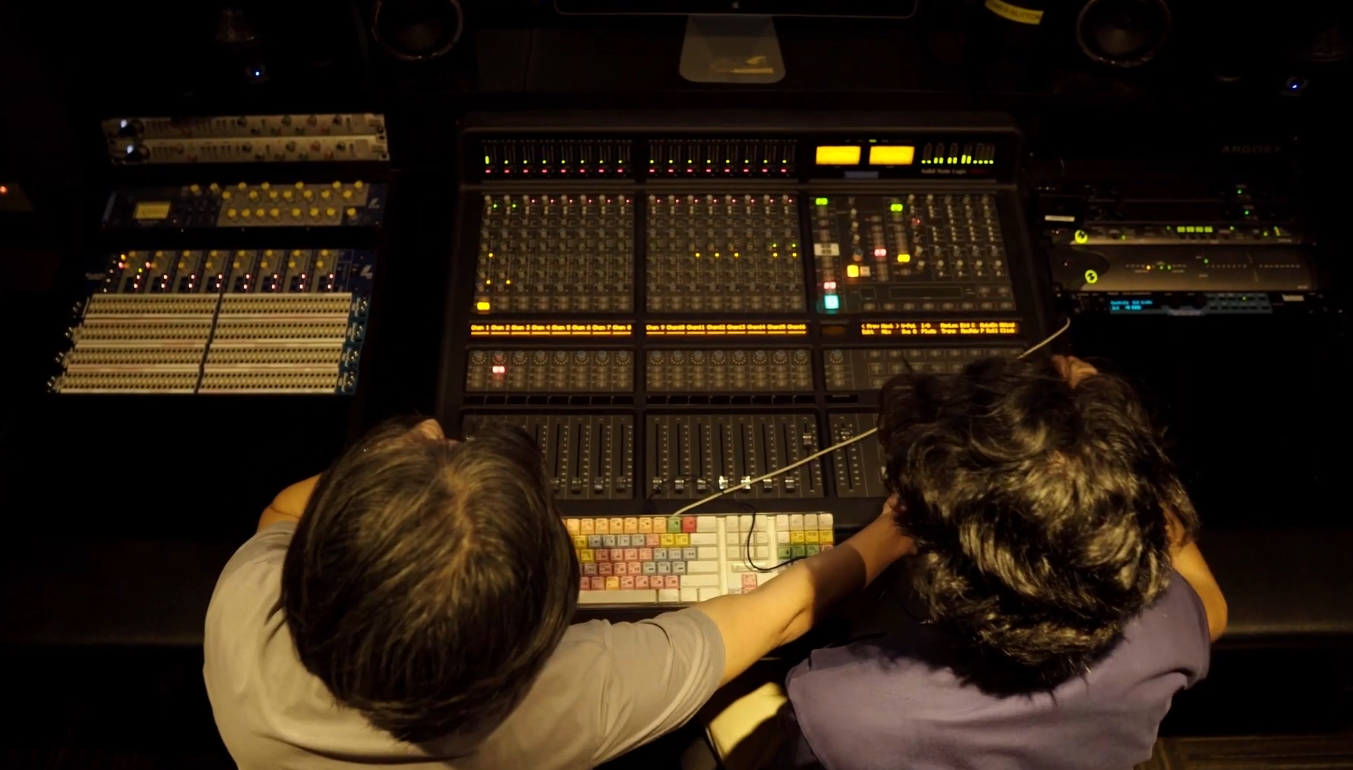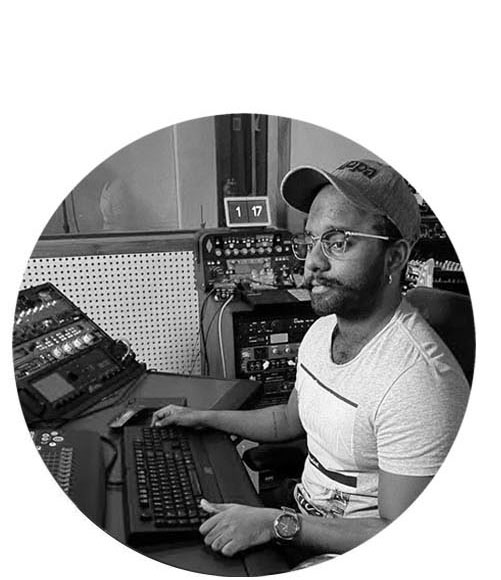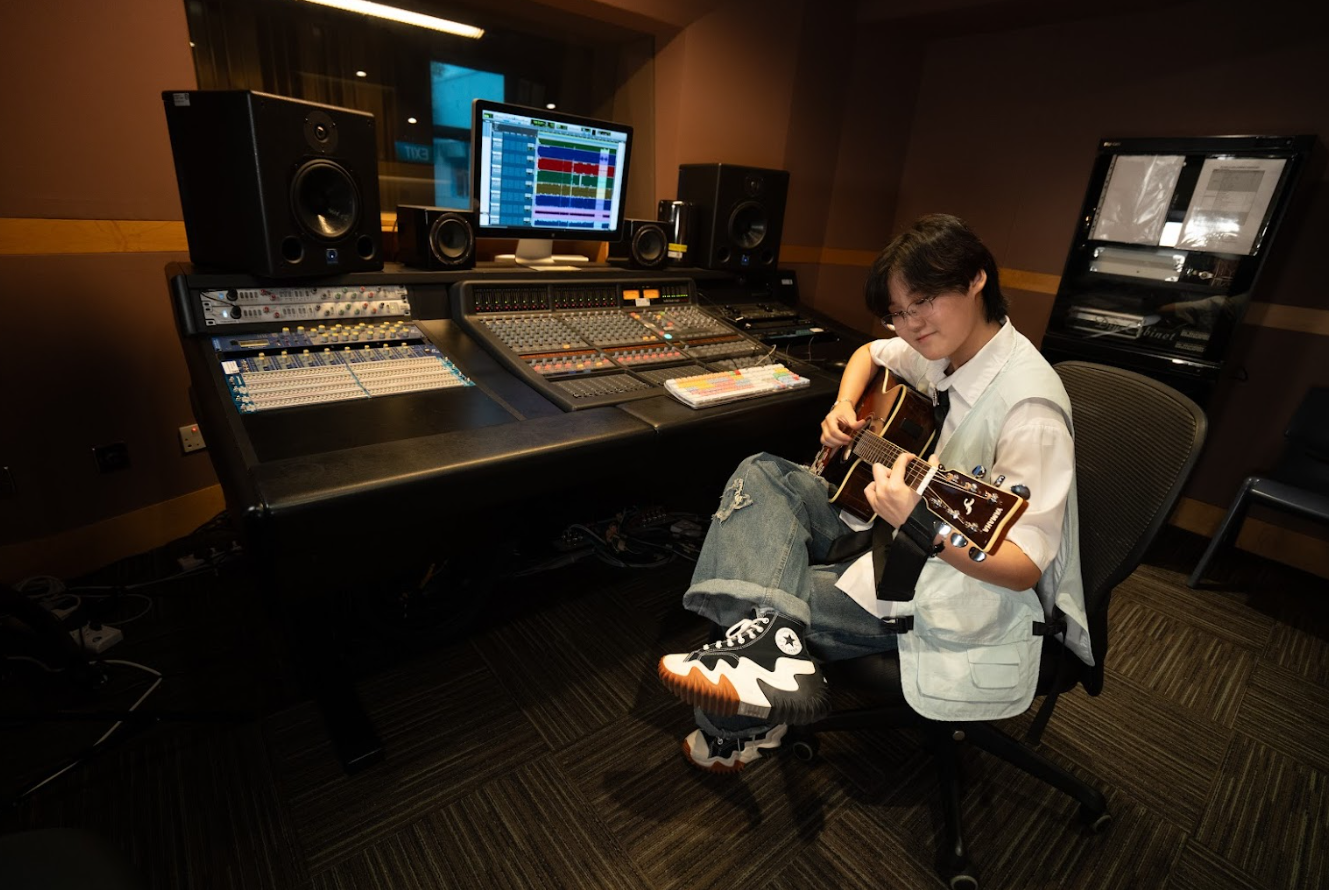Ready to turn your passion for music into a career? SP's Diploma in Media, Arts & Design (Sound and Music) gives you hands-on experience in advanced studios, honing your skills in audio production and sound design. Learn to create, collaborate, and perfect your craft. Step confidently into the sound industry with the expertise you need. Start your journey in sound and music now!
Please note: Course structure is subject to change.
Your DMAD experience begins with the common programme in the first semester known as the Foundry, where you will build foundational skills across all media, arts and design domains. You will also take two pre-specialisation modules. With the exposure to different specialisations, you will be better equipped to select the ones that best match your passions.
Year 2 focuses on deepening your knowledge with advanced topics like Sound Engineering and Live Sound. You’ll engage in a Sustainable Innovation Project (SIP), applying your skills to real-world challenges and preparing for your upcoming internship, enhancing your practical understanding of the sound and music industry.
In Year 3, apply your skills through a 22-week internship and your final year project in the form of a Portfolio Development. This hands-on experience is crucial, equipping you with practical knowledge and confidence for the industry. You’ll gain valuable insights and refine your abilities, setting the stage for your future career in sound and music.
Electives
The SP elective framework offers students options to pursue their passion and/or meet different career needs, and is an integral part of the holistic education we seek to provide to our students.
Learn about SP Elective Framework
The Common Core Curriculum (CCC) prepares you for a changing world with essential human and digital skills. Through its 10 modules, the CCC also provides a wide learning experience to examine local and global issues based on the Sustainable Development Goals (SDGs). These modules help you understand real-world issues and the impact on different communities, and equip you with skills to create a better, sustainable Singapore and world.

What are the eligibility requirements for sound and music?
You must meet the following criteria to qualify for the Diploma in Media, Arts and Design (Sound and Music):

Sound and music at SP prepares me for the future.
SP provides advanced facilities for hands-on learning in sound and music. Use Recording Studios to create and mix tracks, Performance Labs for live sound practice, and Digital Audio Workstations for music production. Gain real-world experience in Production Workshops, equipping you with the skills to excel in the industry
Sound and music at SP prepares me for Singapore.
Sound and music in Singapore offer great opportunities, being a tech and creative hub. In 2025, AI and digital tools are changing music production. SP teaches you the latest tech while nurturing your creativity. Even with advanced AI, human creativity is essential for making music that connects with people.
Sound and music at SP prepares me for the world.
Sound and music covers a variety of niche fields. At SP, you can explore:
These areas give you a broad understanding of the industry and prepare you for your chosen career path.
SP offers 22-week internships with startups, SMEs, MNCs, and government agencies. Diploma in Media, Arts and Design (Sound and Music) students have interned at Universal Music Group, Mediacorp, Sony Music, and more. Some outperform university interns, making notable contributions. These internships often lead to job offers, with graduates becoming Audio Technicians and Music Production Assistants.
Internships connect you with industry professionals, offering hands-on experience and career insights. SP’s coaching boosts employability, while diverse internships broaden your perspective. Benefits include higher starting salaries, industry exposure, valuable networking, and professional growth through meaningful work, learning opportunities, and guidance from mentors.
Overseas exposure broadens your perspective. As a sound and music student, you may have opportunities to participate in projects that enhance your skills, broaden your cultural awareness, and deepen your global understanding. Involvement in CCAs also lets you represent Singapore abroad, building both professional and personal growth.
We know some of you seek challenges. Our students excel in competitions like the Crowbar Awards, Pitch it! by NUS, and the Popularity Award [SG:SW I Write my Songs]. These achievements test your skills, build confidence, and help you grow, keeping you competitive in the sound and music industry.
Many graduates of the Diploma in Media, Arts and Design (Sound and Music) continue their studies in fields that complement their skills. Common degrees include:
These degrees are offered locally and internationally. For more options and advanced standing details, visit the Advanced Standing Database.
If you’re preparing for university and want to make the most of your diploma time, an SP diploma can let you fast-track your education by 0.5-2 years!
One of my biggest takeaways from SP was meeting different people from different walks of life. I met people who were exposed to different arts and forms of music. This meant that subconsciously, we would have heard each other’s inspirations and in one way or another I'm sure that it impacted the craft that we were creating.

